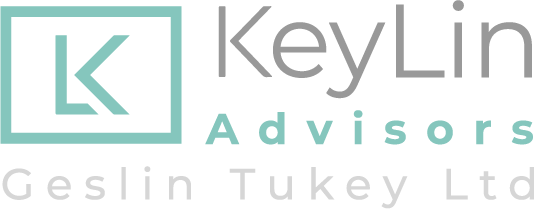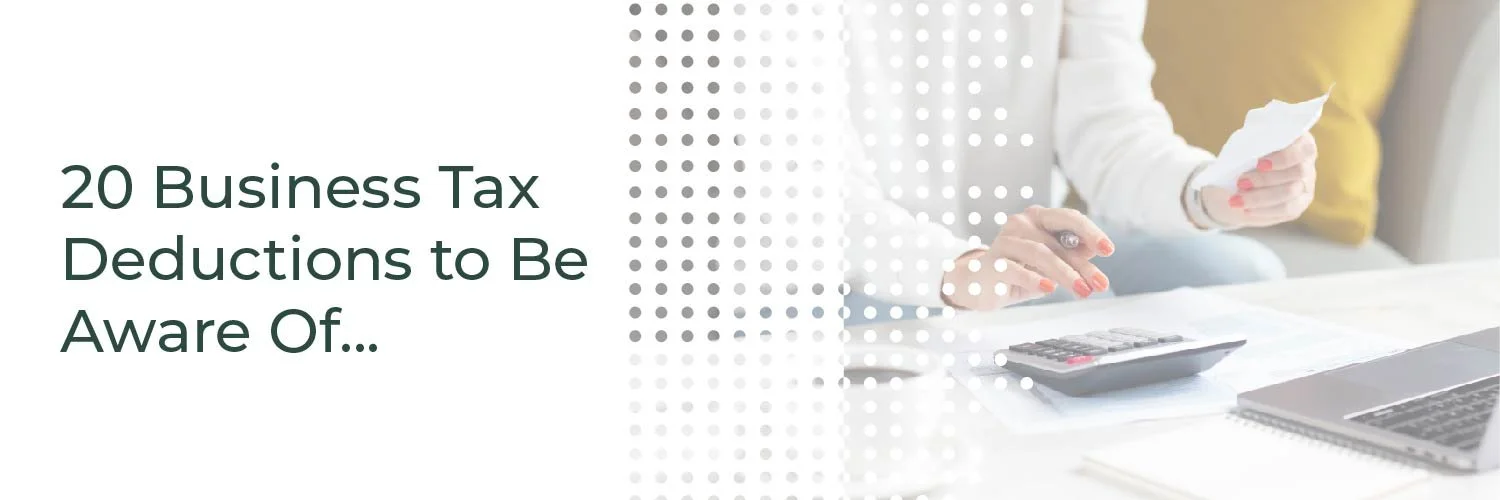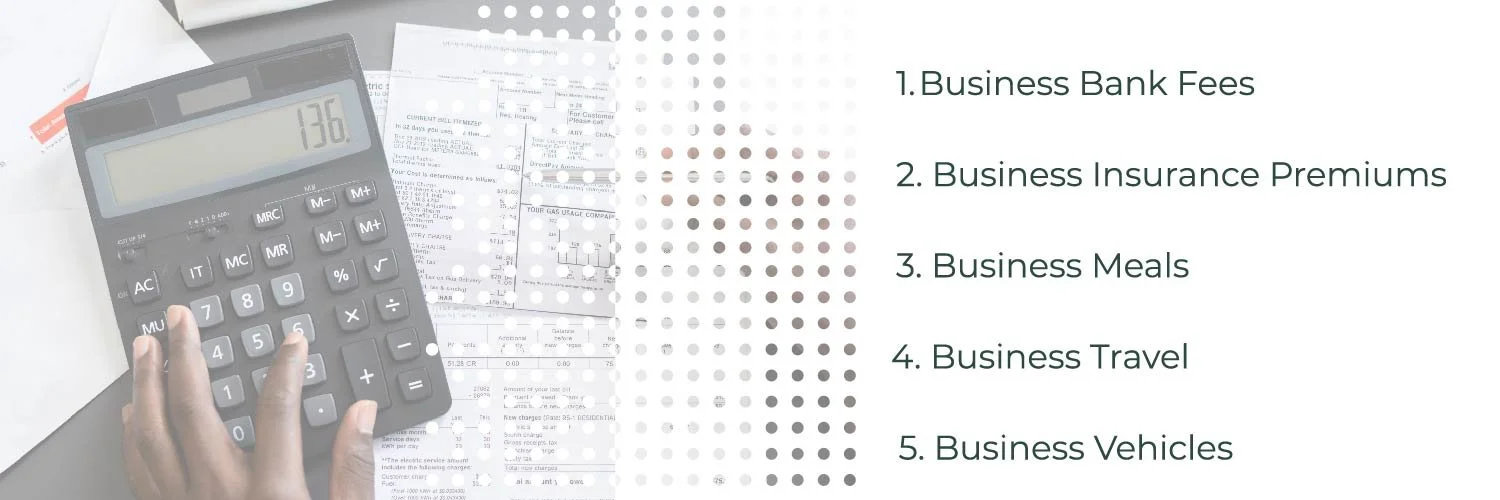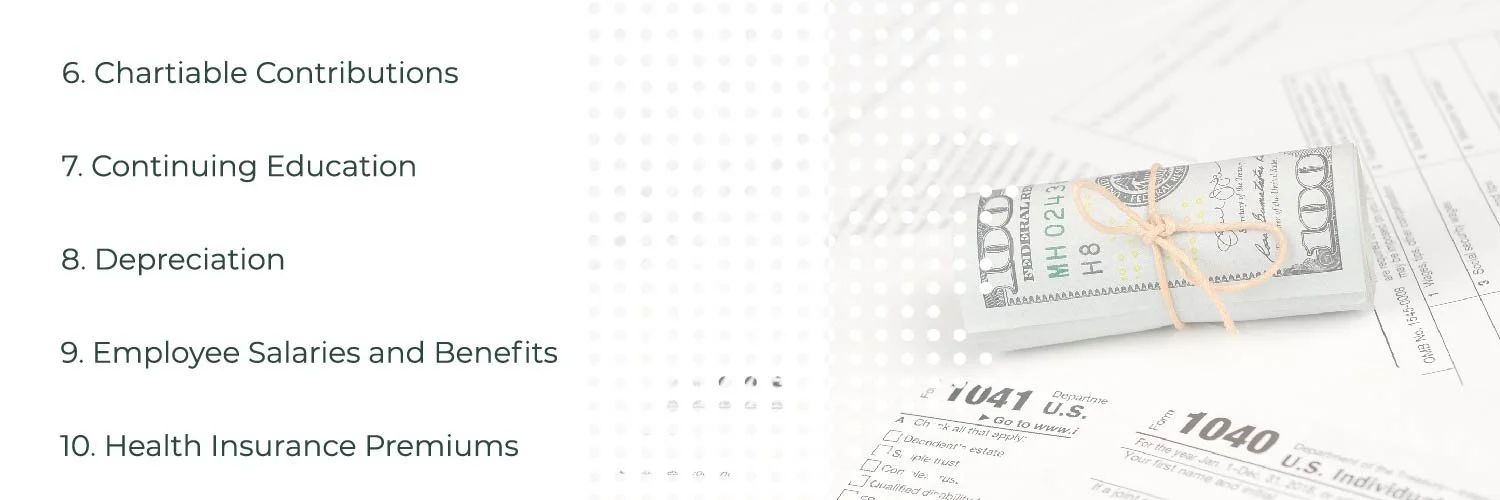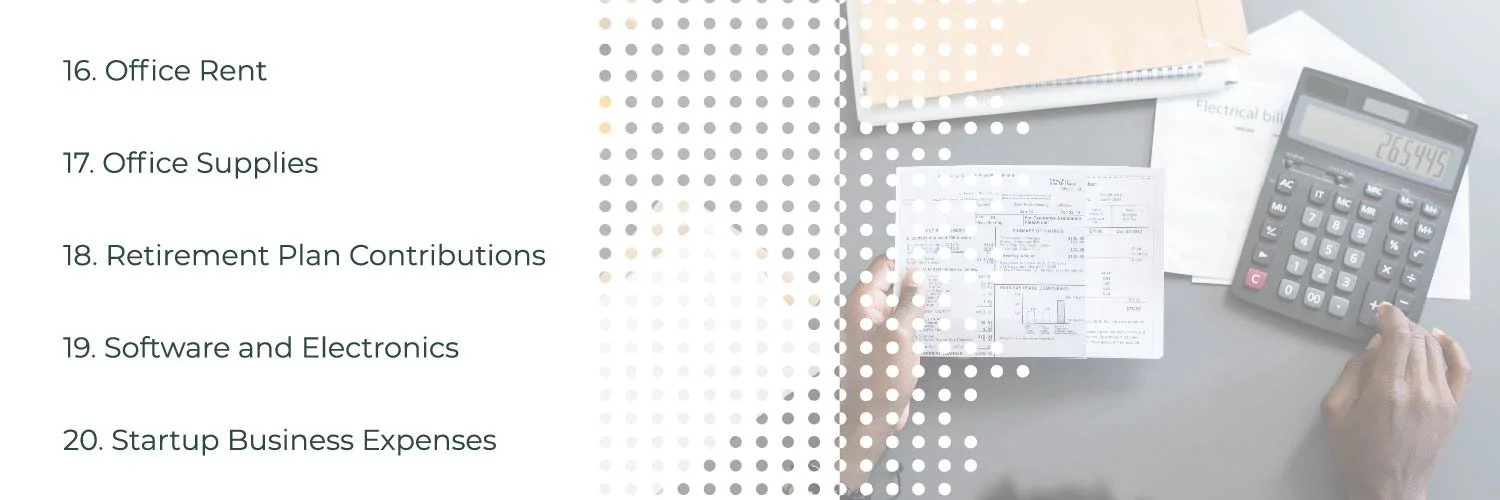Small Business Tax Deductions Checklist: Are You Eligible?
Tax deductions for small businesses can feel complicated. We often receive questions from small business owners about what they can and cannot deduct. Between personal and business expenses, ordinary and necessary expenses, and capital and deductible expenses, there are a lot of expenses — and criteria — to keep track of. Using this small business tax deductions checklist will help you to better understand what you can and cannot deduct to make tax season go more smoothly for you and your business.
Understand Tax Deductions for Small Businesses
The first step to understanding your small business tax deductions is to understand tax deductions in general.
First, expenses are any of the costs associated with running your business. Next, a tax deduction is a specific type of expense that can be removed or subtracted from your taxable income. Expenses must be both ordinary and necessary in order to be deductible.
But what’s considered ordinary and necessary? It depends on your business. However, there are some expenses that are more commonly deducted, which we’ve put into our small business tax deductions checklist below. Understanding your small business tax deductions can save you hundreds — if not thousands — of dollars when tax season arrives.
The Role of Bookkeeping in Small Business Tax Deductions
Staying on top of your deductions throughout the year is key to having a smooth tax season. While it may be tempting to “figure it out later,” that is a surefire way of missing out on deductions that could help you save on taxes. Instead, consider careful bookkeeping as a method of staying on top of your expenses — and finances in general. (Need a bookkeeper? KeyLin can help!)
20 Business Tax Deductions to Be Aware Of
To make sure you can make the most of your business tax deductions, we’ve put together this small business tax deductions checklist for you to follow. The following are some of the most common business tax deductions, which you can take depending on your circumstances.
1. Business Bank Fees
We highly recommend separating your business and personal accounts, including separating your bank accounts and credit cards. The fees associated with your business bank account, like annual fees, transfer fees, and overdraft fees, are then deductible. If you make sales as part of your business, you can also deduct merchant and transaction fees paid to third-party payment processors, like Stripe or PayPal. You cannot deduct any personal banking fees.
2. Business Insurance Premiums
Generally, you can deduct the cost of business-related insurance premiums, as long as it is ordinary and necessary in your industry. This may include property coverage, liability coverage, professional liability or malpractice insurance, and workers’ compensation coverage, among others.
3. Business Meals
You can typically deduct 50% of qualifying food and beverage costs for business meals. In order to qualify, the meal must be an ordinary and necessary part of conducting your business, cannot be lavish or extravagant, and the business owner or employee must be present. If you are providing meals to employees, such as at office parties or while working late, the expense is typically 100% deductible. Be sure to keep careful documentation of the meal, including the date, location, cost, and relationship of other diners, and what was discussed to demonstrate its necessity as a business expense.
4. Business Travel
For business travel to be deductible, it must be ordinary, necessary, and away from your business’s primary location (your tax home). Business travel requires you to be away from your tax home for longer than a normal work day, necessitating sleep or rest during the trip. The exact expenses you can deduct will vary, but may include transportation costs to and from the destination, parking and toll fees, transportation while on the trip, and more.
5. Business Vehicles
If you have a business vehicle, its expenses may be entirely deductible. If you use your personal vehicle for business purposes, you must divide your use based on the mileage you drive for each. There are two ways to deduct vehicle expenses, depending on the tax benefit you’re looking to receive: standard mileage rate and actual expense. Regardless of the method you use, in order to be able to deduct expenses on your vehicle, you must track each trip and the miles driven.
6. Charitable Contributions
As a corporation, you may deduct charitable donations to qualifying organizations as part of your corporate tax return. As a sole proprietor, LLC, or partnership, those contributions may be deductible on your personal tax return.
7. Continuing Education
Continuing education that adds value to your business and increases your expertise is considered deductible. The education must help maintain or improve the skills necessary to run your business. This may include classes, webinars, books, subscriptions, and more, as long as they are tailored to your industry and a required business skill. (Education that would qualify you for a new career or that is not relevant to your business does not qualify.)
8. Depreciation
Depreciation is a reduction in the value of an asset due to use over time. When you purchase larger-ticket items, like furniture, equipment, or other business assets, you must spread the cost of those items out over the lifetime of the assets, instead of deducting them all at once. However, there are a handful of ways you can claim these deductions in one year, depending on your business needs.
9. Employee Salaries and Benefits
The salaries, commissions, bonuses, compensation, and benefits (often including paid time off) paid to employees are generally tax-deductible, provided: the employee is not the sole proprietor, partner, or member of the LLC; the salary is ordinary and necessary and reasonable; services were provided in exchange for the salary and/or benefits. Some benefits that may be deductible include retirement contributions (see retirement plan contributions), health insurance premiums (see health insurance premiums), life insurance policies, employee gifts, and more.
10. Health Insurance Premiums
Health insurance premiums paid for employees can be deducted, as can some out-of-pocket medical costs. If you are a self-employed business owner, you may deduct your own healthcare premiums for yourself, a spouse, and dependents, unless you are eligible for a healthcare plan through your spouse.
11. Home Office
If your small business is run out of your home, your office space may be deductible if it meets the following criteria: regular and exclusive use, and principal place of business. Regular and exclusive use means that the space must be used consistently and solely for your business. Your home office must also be the primary location for your business activities. While you can still conduct business elsewhere, this must be the primary location.
12. Independent Contractors
Freelancers or independent contractors hired to help you conduct business may be deductible as a business expense. Just remember, if you pay them more than $600 during the course of the business year, you must send them a 1099-NEC before January 31 of the following year.
13. Utilities, Internet, and Phone Bills
Utilities such as gas, electricity, and water are 100% deductible, provided you are paying them for the owned or rented space utilized for your business. Similarly, you can deduct 100% of your internet if you have a dedicated office space or a retail store. (A portion of utilities and internet may be deductible if you utilize the home office deduction, depending on how you make the deduction.)
Your phone expenses may be deductible if they are essential to running your business. Depending on your phone situation, you may be able to deduct a portion of your personal cell phone bill depending on how much business you conducted through it, or you may want to consider a second phone for solely business purposes.
14. Legal and Professional Fees
If your legal and/or professional fees are necessary and directly related to running your business, they may be deductible. If these fees have a personal component, you may only deduct the portion that is directly related to running your business. These fees may include lawyers, accountants, bookkeepers, and more.
15. Marketing and Advertising
Marketing and advertising are 100% deductible. This can include anything that helps you share your business with the world, like digital or print advertising, business cards, and posters, as well as anything that helps you expand your Client base.
16. Office Rent
Rented space used by your business for operating may be deductible. This can include an office, a brick-and-mortar space, or even a co-working space, as long as it’s where your business is run. However, if you have or will receive equity in or a title to a property, it cannot be deducted.
17. Office Supplies
Office supplies used exclusively by and for your business may be deductible if they are both ordinary and necessary. You must be able to prove that they are ordinary, necessary, and used exclusively for your business in order to deduct them. These deductions are for items used within the year they are purchased. (For longer-term use, see depreciation.)
18. Retirement Plan Contributions
Contributions made to employee retirement accounts are considered a business expense and can be deducted. The exact amount will depend on the type of retirement account you have.
19. Software and Electronics
The computers, electronics, and software needed to run your business are typically deductible, provided they are ordinary and necessary. This may include your accounting software, Microsoft 365, and more, as well as online software subscriptions. Additional electronics you need to run your business, such as a cash registering system, are also included in this category.
20. Startup Business Expenses
The costs associated with getting your business off the ground — your startup costs — are considered capital expenses because they are investments in your business. Your startup costs will depend on your business model and industry but may include things like your registration, purchasing inventory or equipment, leasing a space, and more. Deducting capital expenses happens through a process called amortization and can take a couple of years, but it is possible.
Use Your Small Business Tax Deductions Checklist
Now that you have your small business tax deductions checklist, all that’s left to do is apply it to your expenses. Looking over your expenses, consider what is and is not deductible. For all of the above expenses, remember that they must be ordinary and necessary, as well as follow any guidance given. Not sure if you can deduct something? Better safe than sorry. If you have questions about a certain expense, look over our other small business resources or contact one of our expert bookkeepers today for support.
